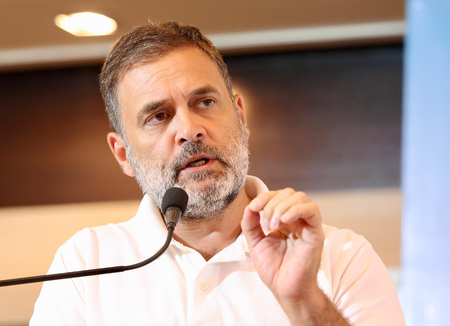

Ranchi, Oct 9 (IANS) The Jharkhand High Court has granted temporary relief to Leader of the Opposition (LoP) in Lok Sabha, Rahul Gandhi, in a criminal defamation case linked to his alleged derogatory remarks against Union Home Minister Amit Shah.
A single-judge bench of Justice Anil Kumar Choudhary on Thursday quashed the Chaibasa MP-MLA court’s order taking cognisance of the case and issuing summons to LoP Rahul Gandhi.
The High Court also sent the matter back to the lower court for fresh consideration. The court observed that the magistrate appeared to have been influenced by the directions of the Sessions Court while taking cognisance.
The case stems from a statement LoP Rahul Gandhi made during a Congress convention in 2018, where he allegedly referred to then-BJP national president Amit Shah as a “murderer.” The remark sparked controversy and prompted BJP leader Pratap Katiyar of Chaibasa to file a criminal defamation complaint.
According to the complaint, LoP Rahul Gandhi said, “No murderer can become the national president of the Congress. Congressmen cannot accept a murderer as their president — this is possible only in the BJP.”
Following the complaint, the Chaibasa MP-MLA Court had first issued a bailable warrant against Gandhi in April 2022, and later a non-bailable warrant in February 2024.
LoP Rahul Gandhi’s plea for exemption from personal appearance under Section 205 of the CrPC was also rejected by the trial court, prompting him to approach the High Court.
In March 2024, the High Court granted him temporary relief and disposed of his petition.
However, the Chaibasa court issued another non-bailable warrant on May 22, 2025, after which LoP Rahul Gandhi appeared before the court on August 6, 2025, and was granted conditional bail.
Subsequently, LoP Rahul Gandhi again challenged the MP-MLA Court’s decision to take cognisance and issue summons, arguing that the lower court had failed to apply its independent judicial mind.
The High Court accepted this argument and set aside the cognisance order, directing the lower court to reconsider the matter in accordance with the law.
–IANS
snc/skp/dan
